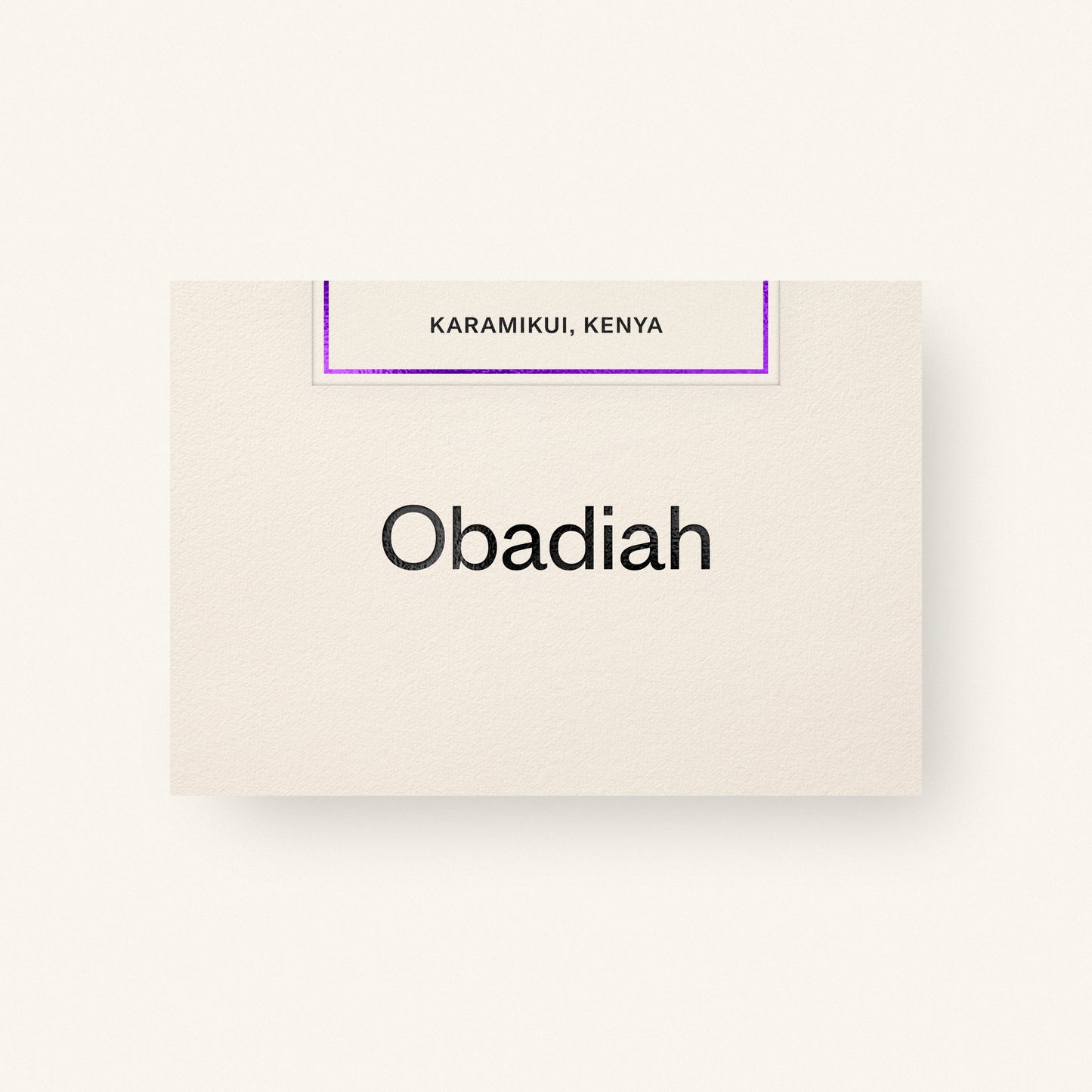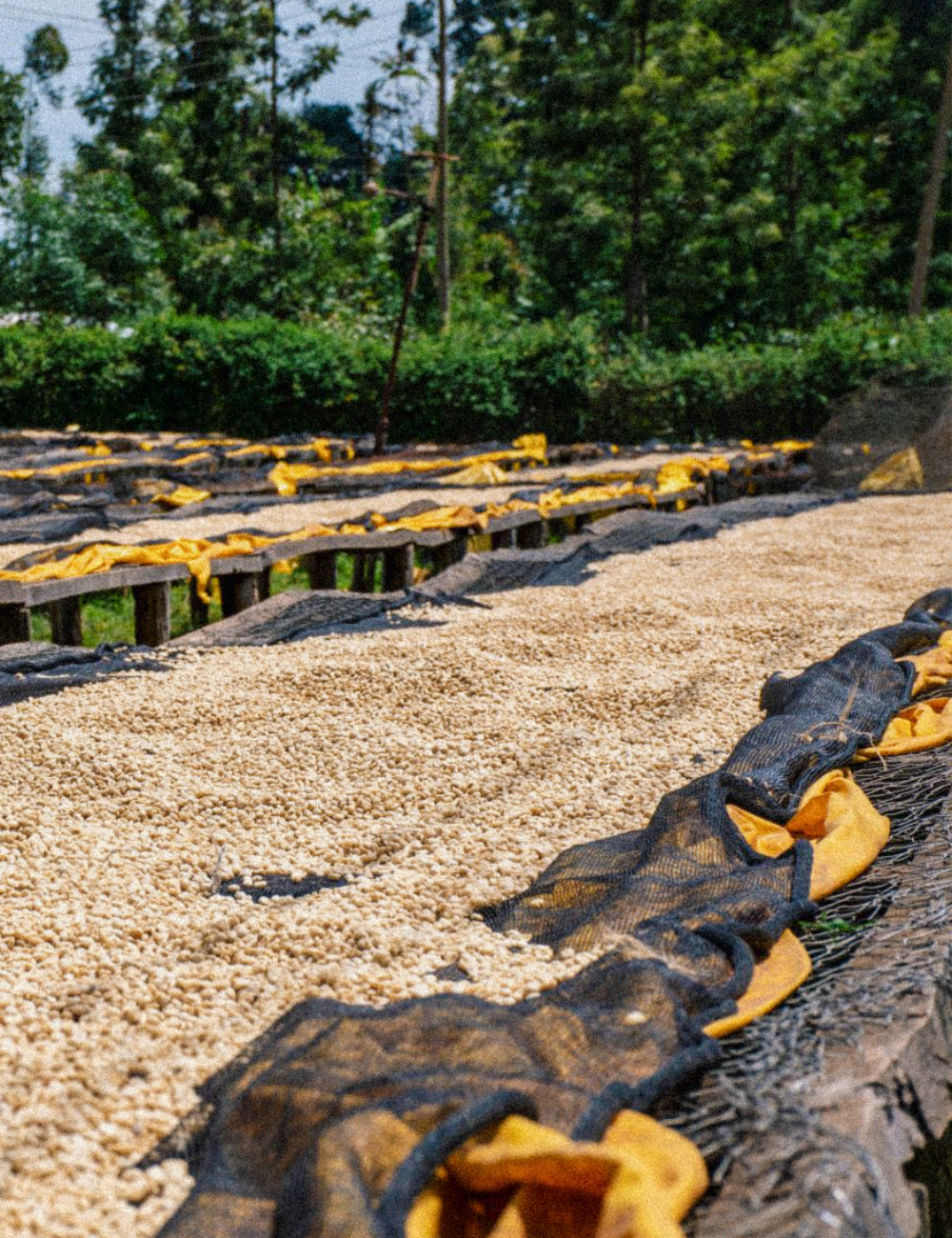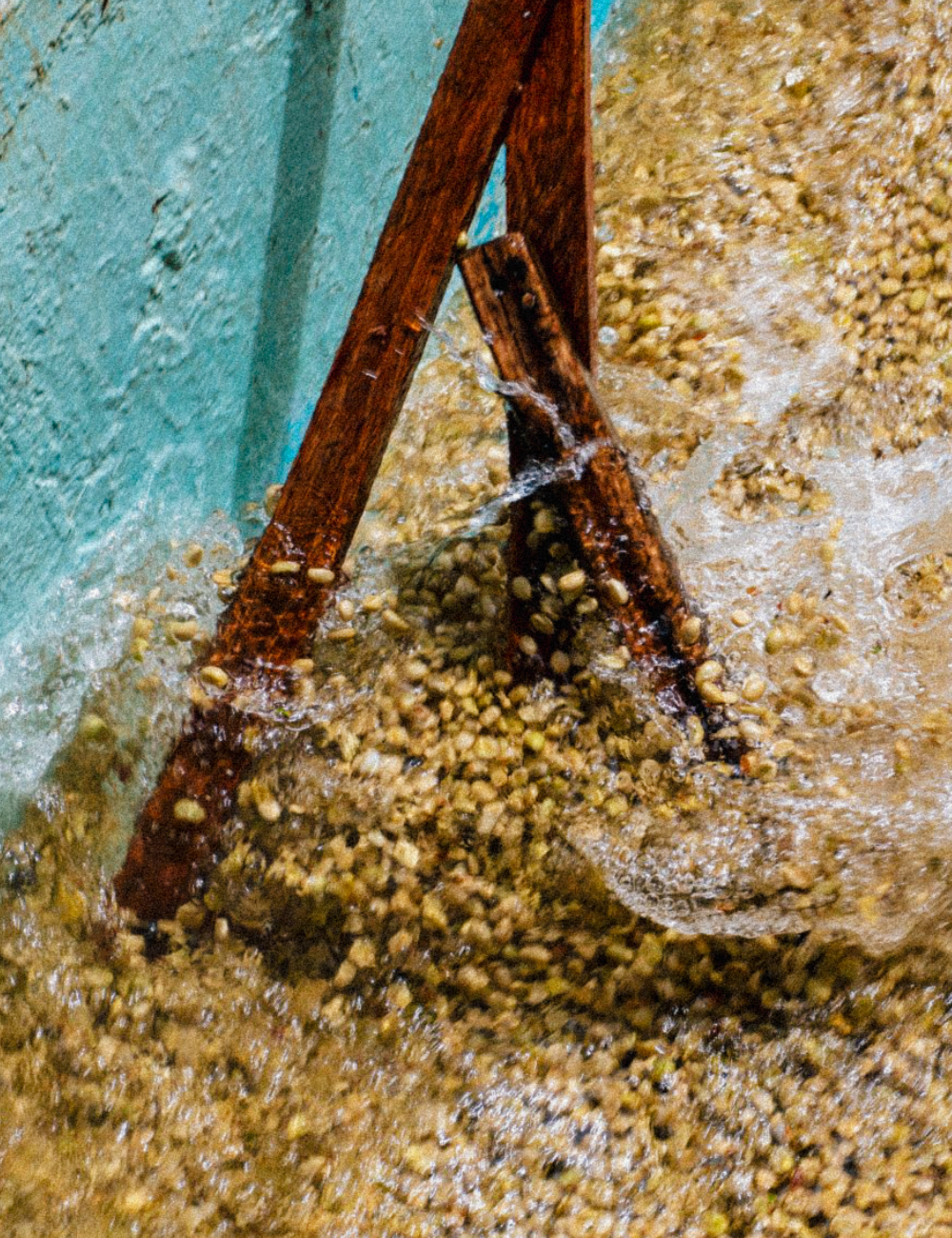Karimikui
Karimikui
A meticulous washed process using fresh water flowing from the snowy peaks of Mt. Kenya: blackcurrant acidity & a creamy body.
Regular price
£15.50
Regular price
Sale price
£15.50
Unit price
per
Couldn't load pickup availability
Character
Character
We taste blackcurrant and vanilla.
Brewing
Brewing
Recommended for espresso and filter.
Resting
Resting
We recommend resting our coffee inside its sealed bag for a minimum of 21 days to enjoy the best results.


Fresh water from Mt. Kenya.

The Producer

